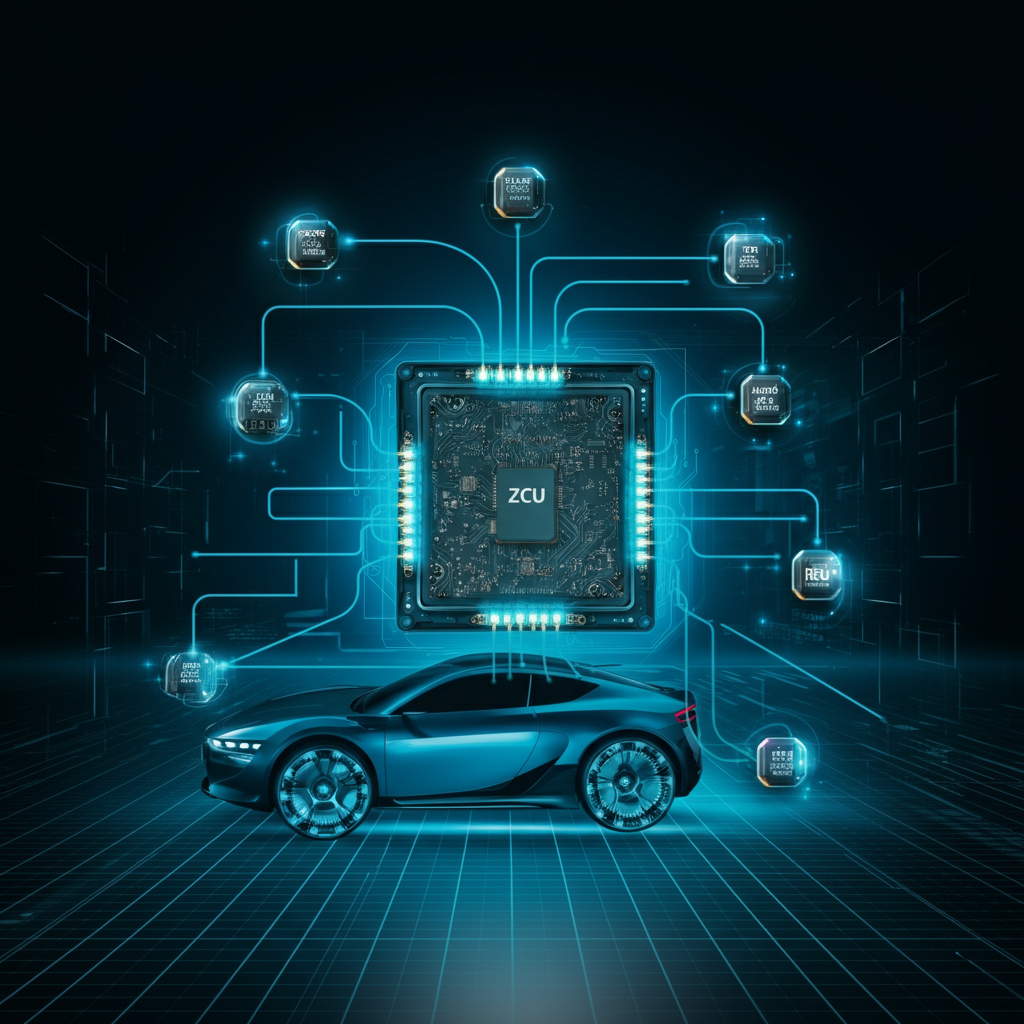Zone Control Units (ZCUs) serve as the central nervous system for modern vehicles, coordinating communication and data exchange between various electronic control units (ECUs). Protecting these critical components is paramount to ensuring vehicle safety, reliability, and performance.
Understanding ZCU Vulnerabilities
ZCUs are susceptible to a range of threats, including:
- Cyberattacks: Malicious actors can exploit vulnerabilities in ZCU software and hardware to gain unauthorized access, disrupt vehicle functions, or steal sensitive data.
- Physical Damage: Accidents, environmental factors, or manufacturing defects can cause physical damage to ZCUs, leading to malfunctions or complete failure.
- Electromagnetic Interference (EMI): Strong electromagnetic fields can interfere with ZCU operations, causing errors or data corruption.

Protection Strategies
To mitigate these risks, automotive manufacturers employ a combination of hardware, software, and system-level protection measures:
- Hardware-Based Protection:
- Redundancy: Implementing redundant ZCUs or components can provide backup functionality in case of failures.
- Physical Isolation: Enclosing ZCUs in shielded compartments or using physical barriers can protect them from external interference and physical damage.
- Tamper Detection: Incorporating tamper-proof seals, sensors, or other mechanisms can detect unauthorized access or tampering.
- Software-Based Protection:
- Secure Boot: Ensuring that only authorized software can be loaded onto the ZCU helps prevent unauthorized access and malicious code execution.
- Intrusion Detection Systems (IDS): Monitoring ZCU network traffic for suspicious activity and raising alerts can help detect and respond to cyberattacks.
- Firewall and Network Segmentation: Isolating ZCUs from other vehicle networks can limit the potential impact of attacks.
- Secure Coding Practices: Adhering to secure coding standards and guidelines can help prevent vulnerabilities in ZCU software.
- System-Level Protection:
- Over-the-Air (OTA) Updates: Regularly updating ZCU software can address vulnerabilities and improve security.
- Incident Response Plans: Having well-defined procedures for responding to security breaches or system failures is essential for minimizing damage and restoring functionality.
- Supply Chain Security: Ensuring the security of the entire supply chain, from component manufacturers to assembly plants, is crucial for preventing vulnerabilities from being introduced into the system.
Emerging Trends in ZCU Protection
As vehicle technology continues to advance, so do the threats facing ZCUs. Emerging trends in protection include:
- Artificial Intelligence (AI): AI-powered security solutions can help detect and respond to advanced threats more effectively.
- Blockchain Technology: Blockchain can provide an immutable record of ZCU software updates and security events, enhancing transparency and accountability.
- Homomorphic Encryption: This technique allows sensitive data to be processed without revealing its underlying content, providing additional protection against data breaches.
By implementing robust automotive cyber security protection measures, automotive manufacturers can safeguard ZCUs and ensure the safety, reliability, and security of modern vehicles.